The Recycle Center of Pobsook in Thailand was established to recycle household waste and convert it into organic fertilizer. The center also offers lectures to promote the importance of waste classification for residents, school students, public officials and people from Thailand and even overseas.

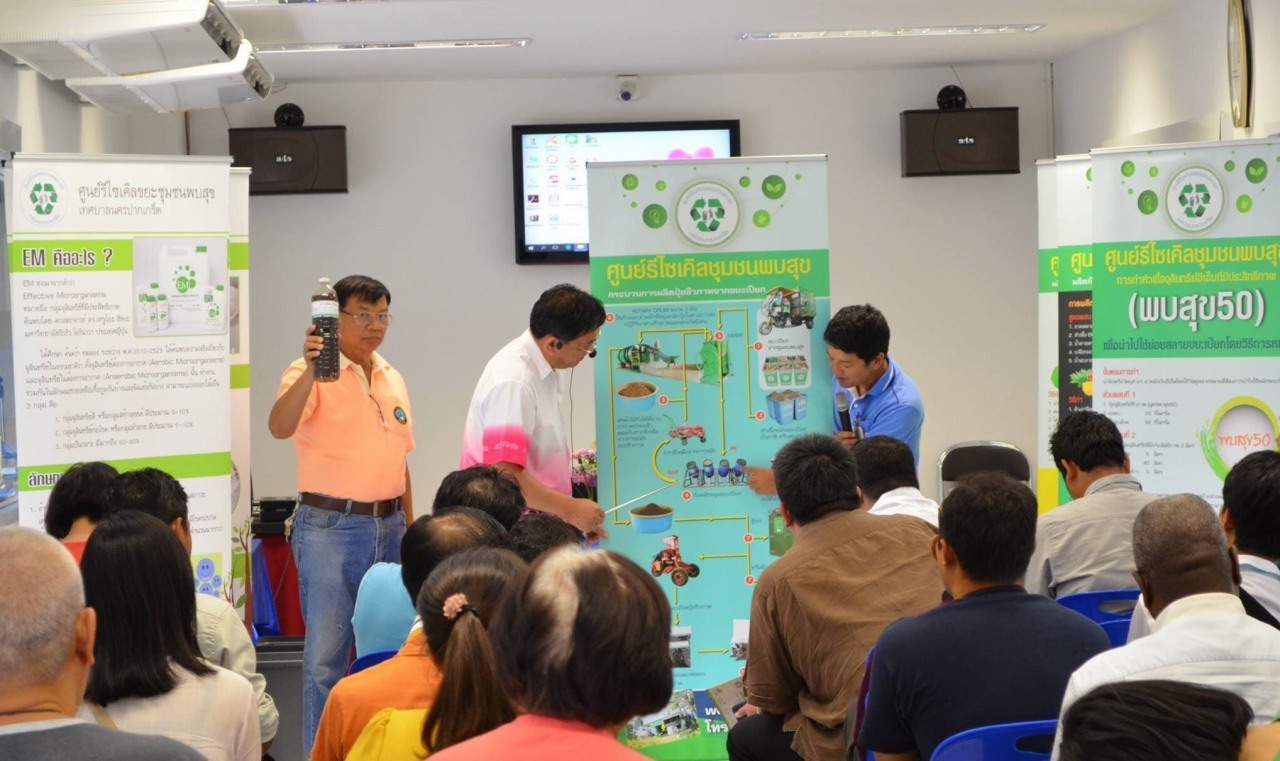
Lectures to learn classification of waste use of EM for the benefits of residents
The Recycle Center of Pobsook is located in the Pobsook Community of Pakkret municipality, Nontaburi province in Thailand.
Under the management of Pakkret municipality and the support of JICA (Japan International Cooperation Agency) and the Embassy of Japan, the Recycle Center of Pobsook was established in 2003 to launch a composting program that helps reducing the amount of waste in the community.
Pakkret municipality encourages residents to get actively involved in classifying household waste to contribute to build a zero carbon emission city.
Pakkret municipality remarks that the amount of waste has seriously increased to approximately 250 tons per day and around 40% of it was food leftovers, vegetables and fruits which usually contained 20% of carbon and nitrogen, being suitable for making organic fertilizer. Another 40% of waste is recyclable waste of papers, plastic and glass; while the remaining 20% is waste to be eliminated. So, recycling 80% of waste would be conducted to minimize the cost of refuse waste management.
The Recycle Center of Pobsook was also established to provide lectures to spread the importance of waste classification for residents of the community as well as school students, public officials and interested people from the whole country and even overseas.
The center built on a space of 275m2 collects waste from 250 households. The quantity of waste in Pobsook community reach approximately 1000kg per day.
The approximated ratio of waste type is:
*Household organic waste 46%
*Recyclable Waste 44%
*Refuse Waste 10%
The process of making organic fertilizer is as follows:
1. The collection of waste and process is held every day in the morning from 9:00 to 11:00 approximately.
2. The personnel is responsible to measure the weight of waste and record the data daily to have a control of the waste management monthly and yearly.
3. The waste is mixed with EM Bokashi during about 10 minutes.
4. The mixture obtained from the mixer is placed in net bags to let filter the liquid part during the fermentation process. The net bags are placed into plastic containers. These containers have a tap on the bottom to drain the liquid.
5. The fermentation process takes around one week and the liquid drained is already liquid fertilizer.
6. The fermented waste is mixed once again with crushed tree leaves and branches to increase the amount and reduce the moisture in the waste.
7. The mixture is placed into the rotary drum to complete fermentation process and reduce the moisture for a period of 10 to 12 days.
8. However, due to big amount of waste and limitation of space, some part of the mixture is drying in open space or using an oven.
9. After the drying process, the fertilizer is crushed in the rotary mill and the final product is packed. A fertilizer sample is sent for an analysis test of N,P,K.

Household organic waste is mixed with EM Bokashi
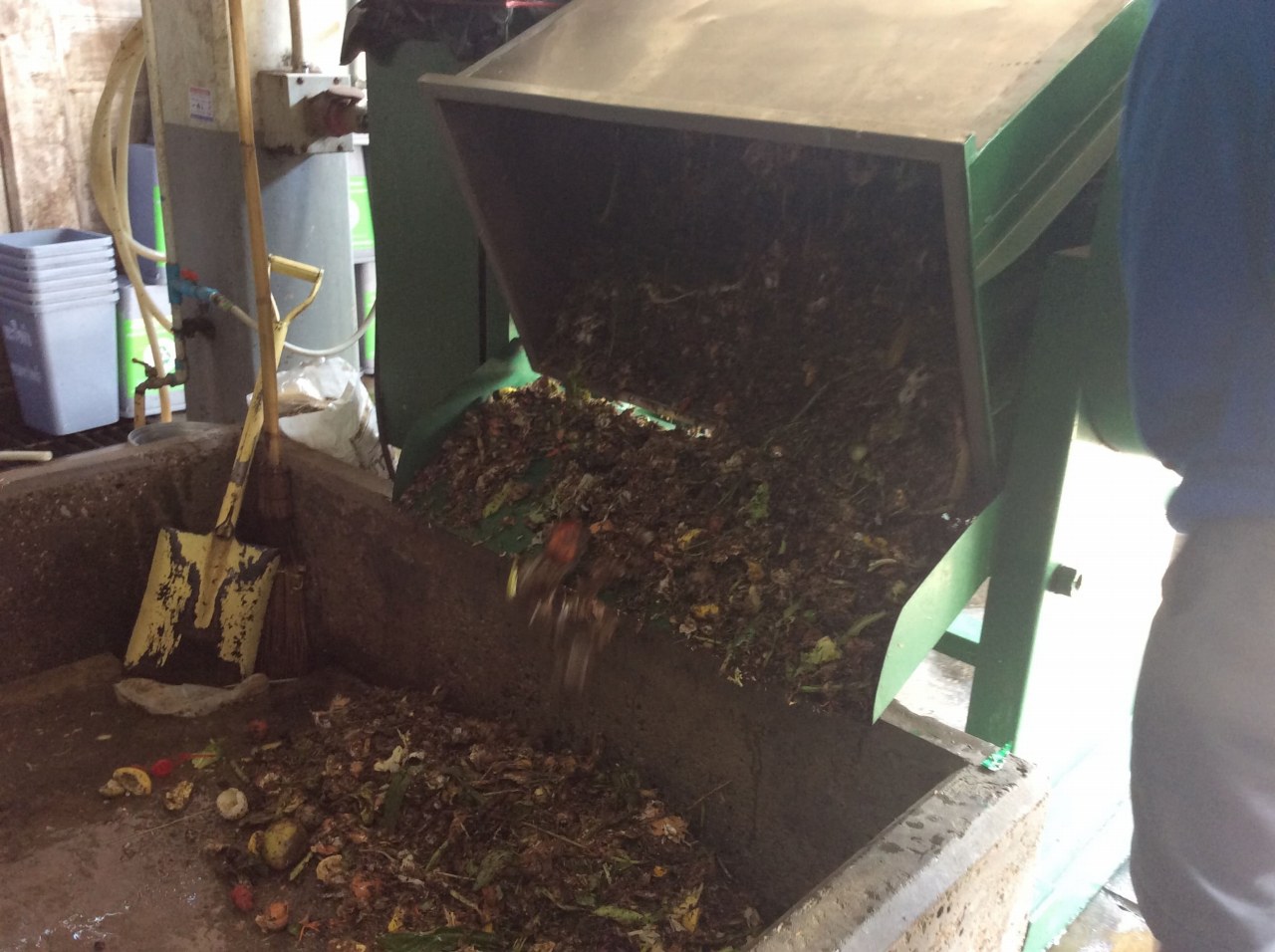
Waste after mixed with EM Bokashi prevent of stench and flies
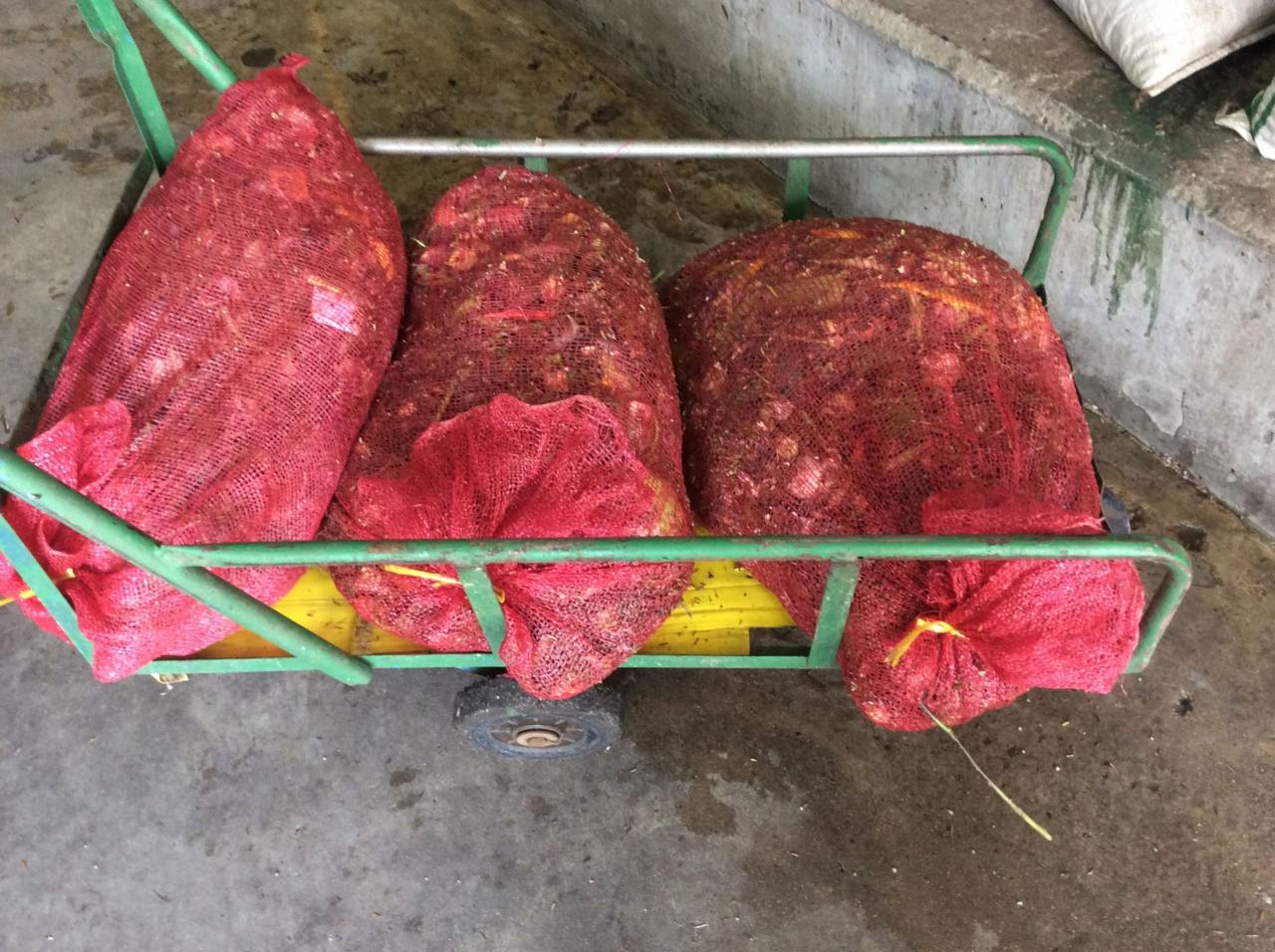
The mixture of waste plus EM Bokashi is placed in net bags for fermentation process with EM
The high quality fertilizers are applied to take care of surrounding trees, gardens and open spaces of the community or the Pakkret municipality’s parks.
Today, there is an ongoing project to open a park with a museum still in construction with a variety of papayas, banana trees among others.
The Recycle Center of Pobsook is also concerned on the water treatment of channels and rivers, so they make their own EM Mudballs for applying into neighboring channels along with Activated EM・1.
The center is continuously busy not only for their waste management tasks but also for receiving visitors from in and outside Thailand who wants to learn and replicate this system in their home place.
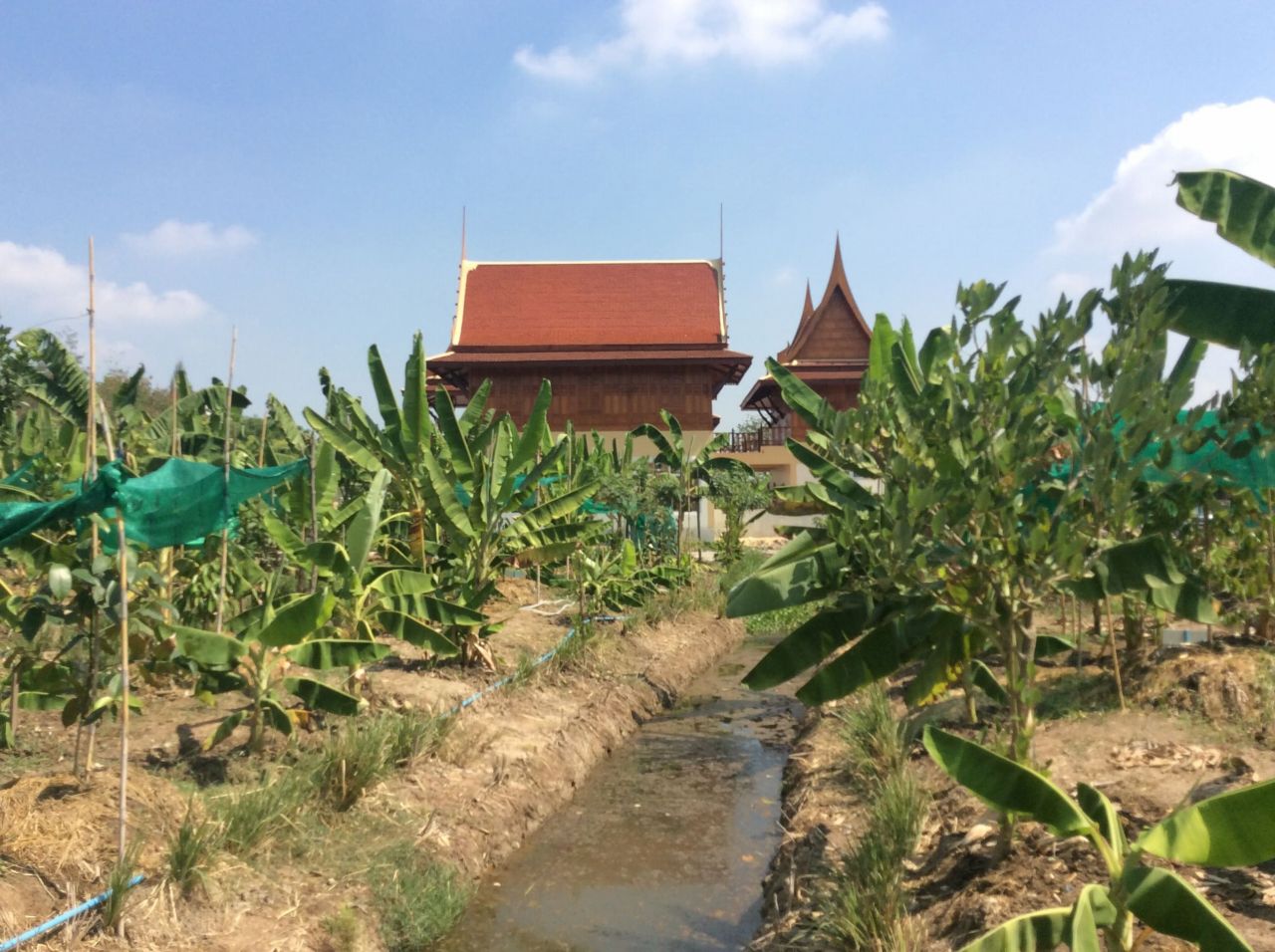
Fertilizers from the recycle center are applied in neighboring parks
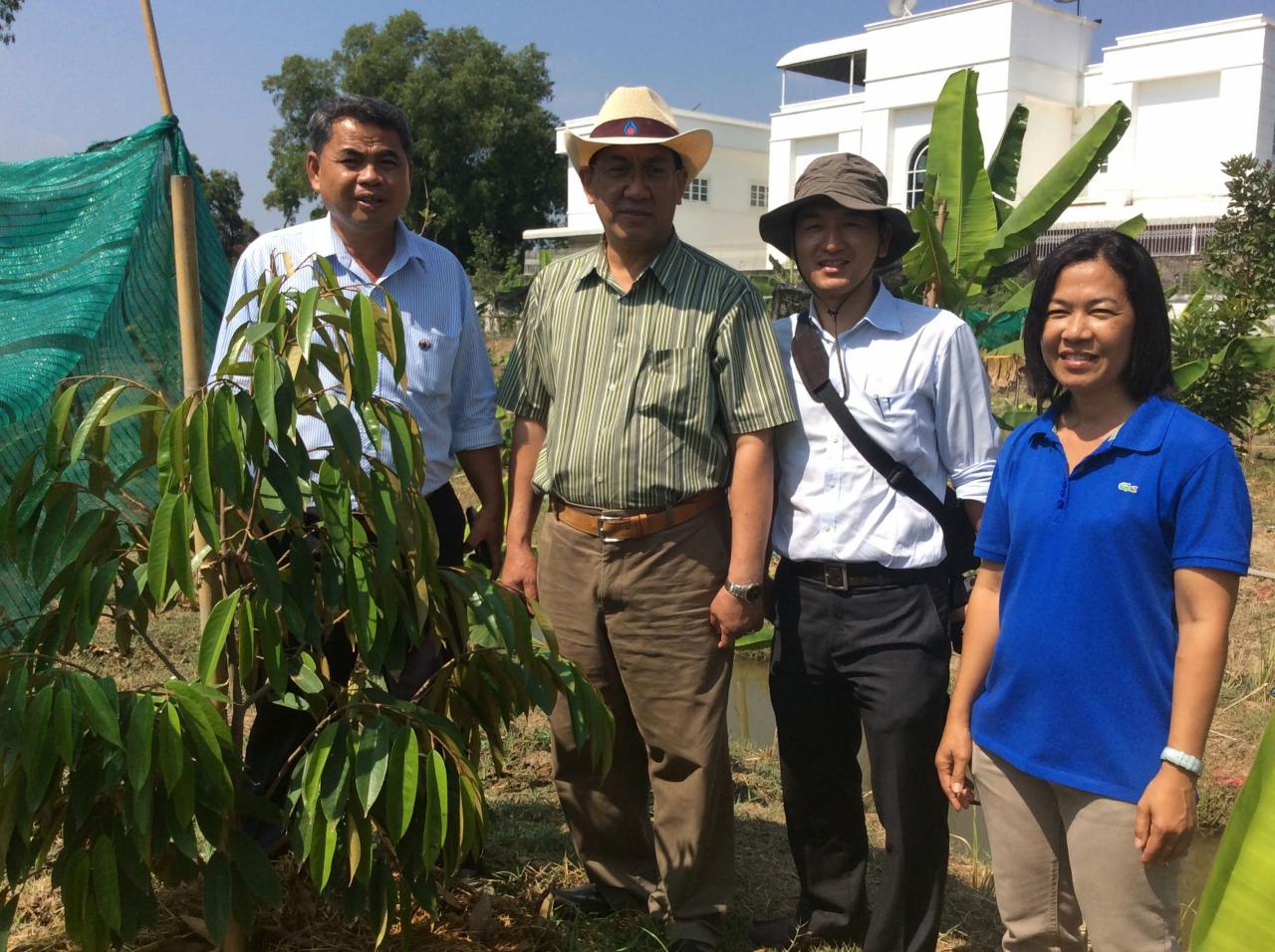
Director of the Center along with relevant managing personnel of the park and EMRO Asia managing director
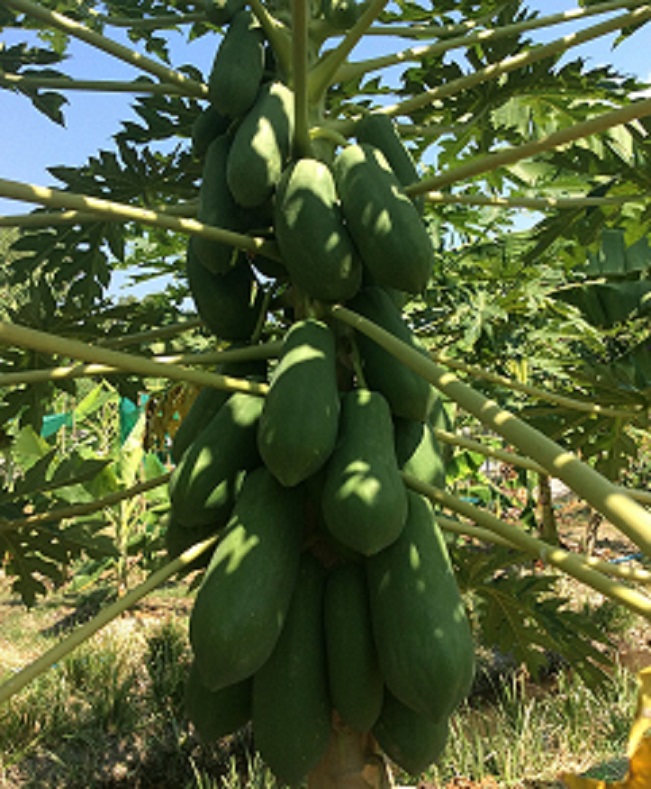
Papayas grown big and healthy with the EM fertilizers produced at the center
Mr. Anek Homwan, the Director of the Center, explains that they had to deal with serious problems of flies and stench before applying EM Technology. Now, their staff are happy to work without any stress of flies or stench.
They also produce their own EM Soap and use it for cleaning up the waste buckets, equipment and all the factory floor. Mr. Anek says that since they are using EM Soap, dirt in buckets is easily removed and the operation has speeded up.
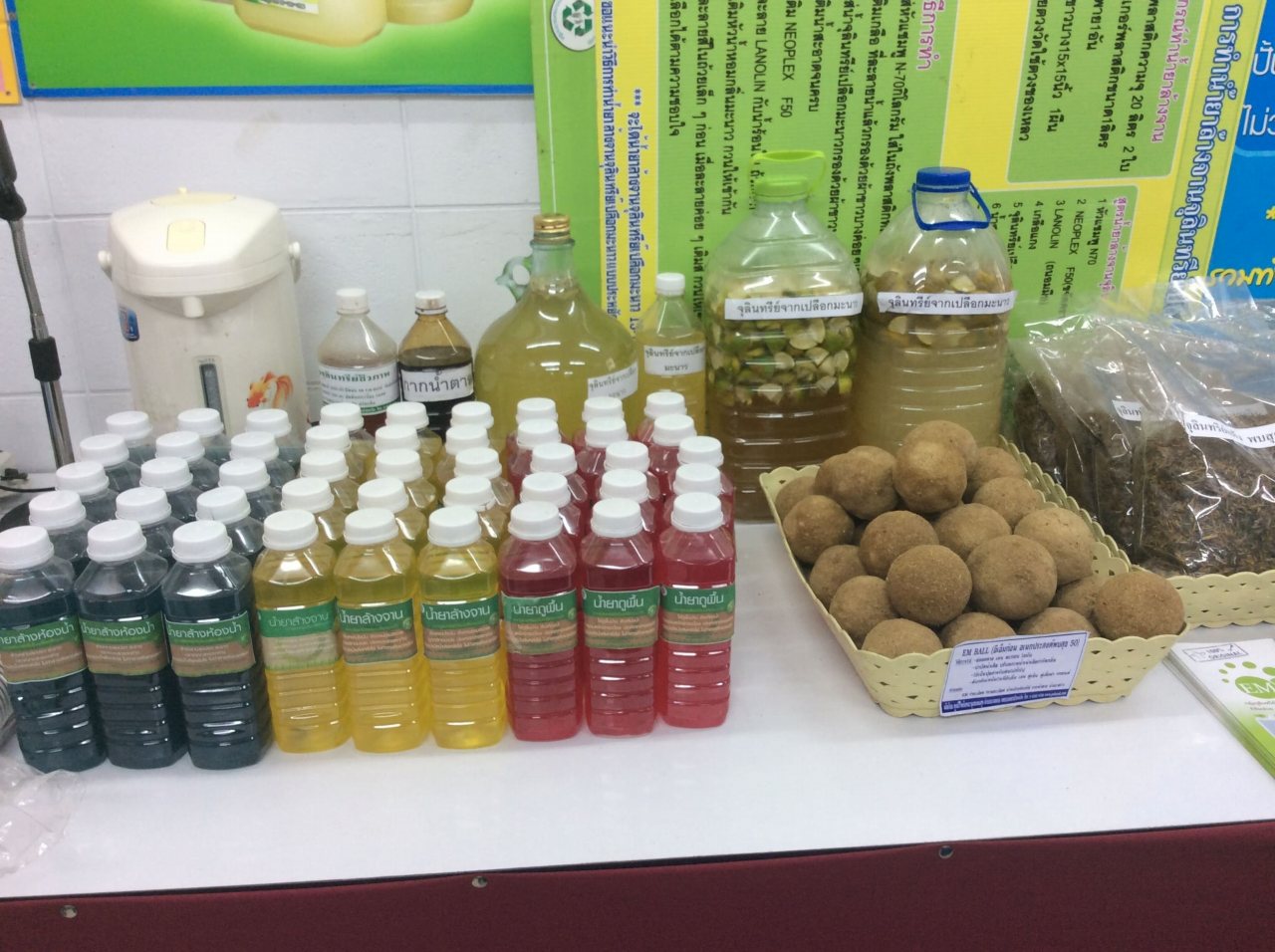
The center produces its own EM Soap, EM Mudballs and other products
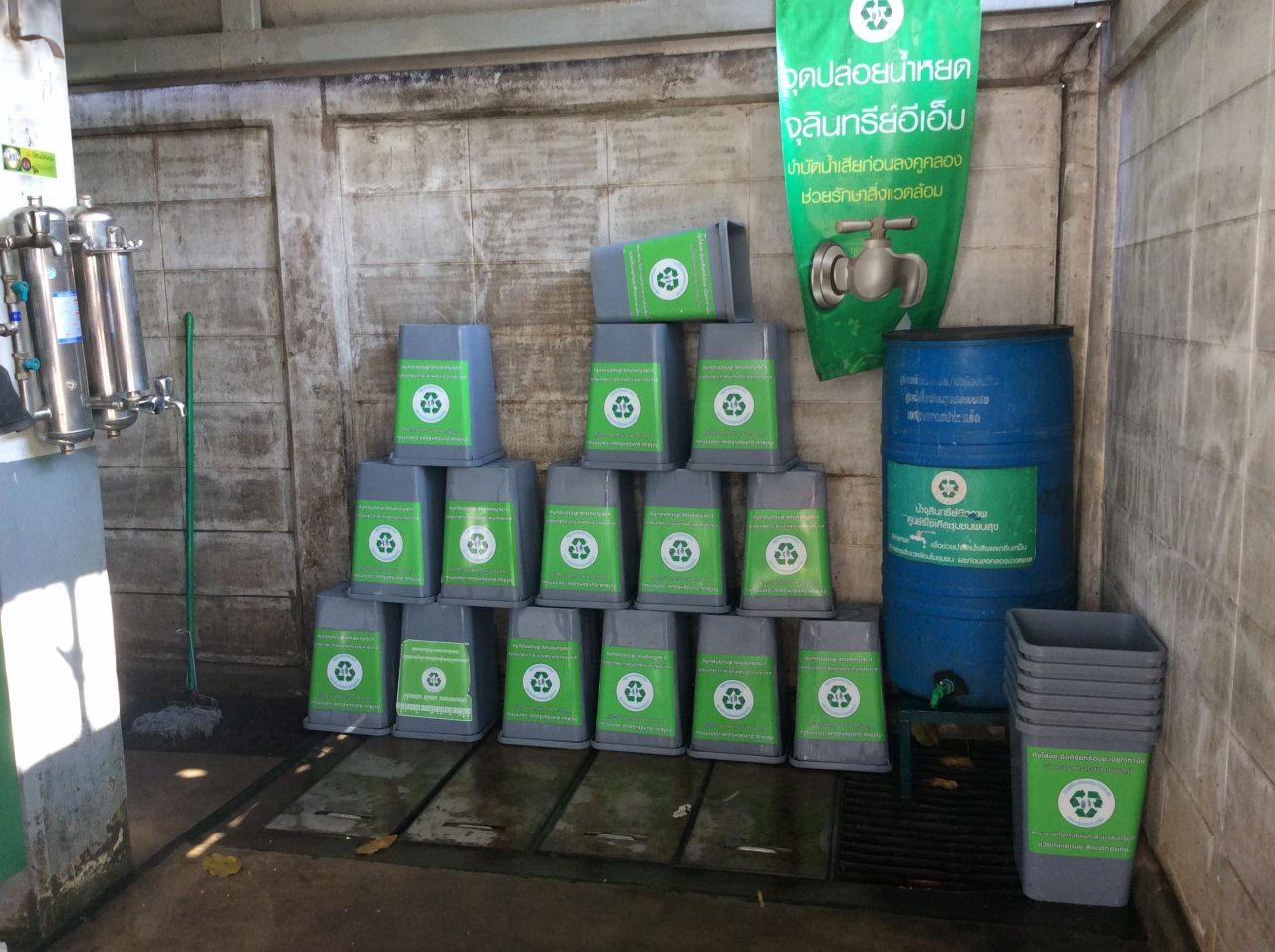
Using EM Soap clean up of buckets has been speed up
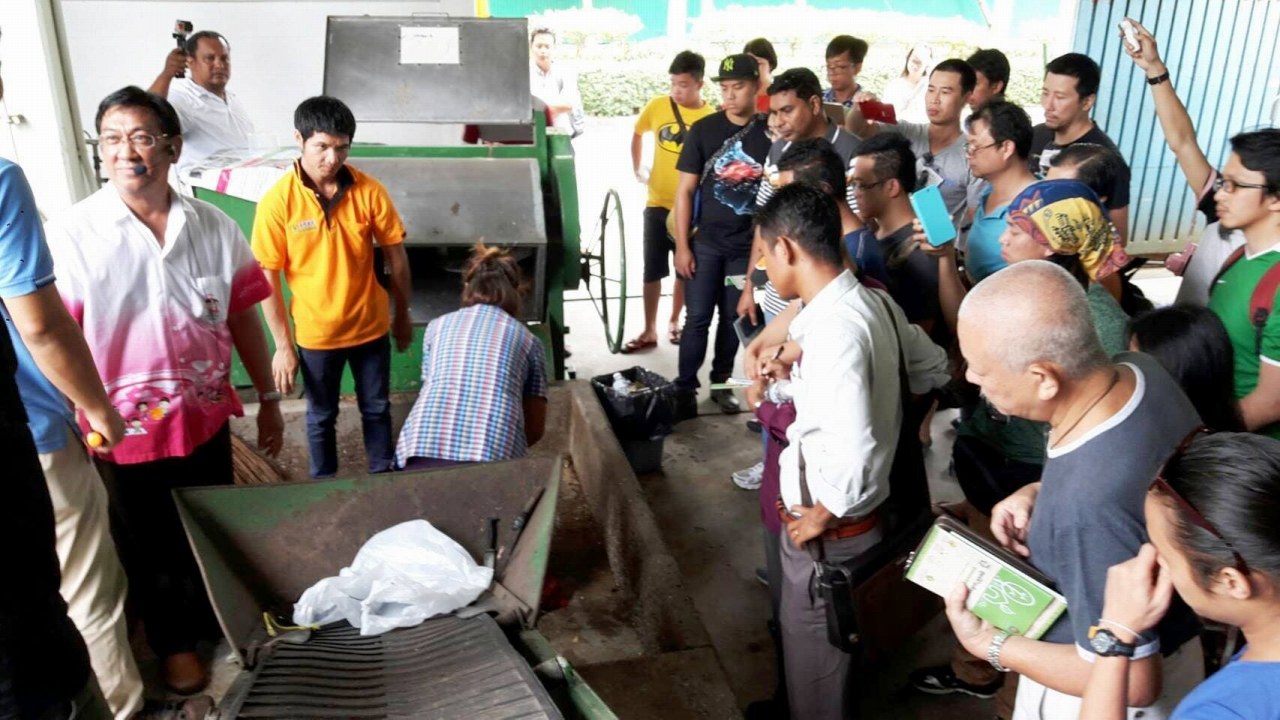
The center offers workshops to get people concern on waste problems
2017.2.17 Updated